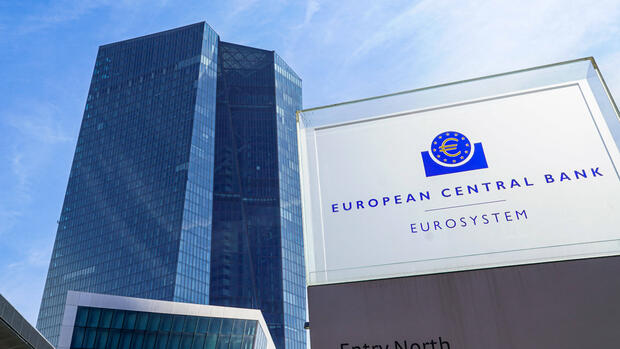ECB President Christine Lagarde recently remarked that the central bank still had a way to go on its tightening course.
(Photo: IMAGO/Political Moments)
Bangalore According to a survey by the Reuters news agency among economists in the fight against inflation, the ECB is likely to raise interest rates for the ninth time in a row next week. According to the results, all 75 economists who answered a question expected the monetary authorities to hike the deposit rate by a quarter of a percentage point to 3.75 percent on July 27, according to the survey released on Thursday.
This rate, which banks receive from the central bank for parking excess funds, is currently considered the relevant interest rate in the euro area. Reuters polled economists on their expectations between July 14 and 19.
For the subsequent interest rate meeting on September 14, however, the answers were less clear. 35 out of 75 economists assumed that the European Central Bank (ECB) would not raise interest rates any further. 40 economists expected the deposit rate to rise again by a quarter of a percentage point to 4.00 percent.
In the June survey, only four economists had expected another hike in September. The deposit rate would thus reach its highest level since the introduction of the euro in 1999. According to the survey, the first interest rate cuts are not expected until the first quarter of 2024 at the earliest.
ECB President Christine Lagarde recently remarked that the central bank still had a way to go on its tightening course. Inflation in the euro area is still too high and is likely to remain so for too long. The inflation rate fell to 5.5 percent in June after 6.1 percent in May. However, it is still more than twice as high as the ECB’s target of 2.0 percent, which it is aiming for as the optimal level for the currency area.
>> Read here: Who benefits from the European Monetary Union – and who it harms
In addition, the core rate, which excludes, among other things, the volatile energy and food prices as well as alcohol and tobacco, rose to 5.5 percent in June from 5.3 percent in May. The core rate is considered an important measure of underlying inflation trends.
In the survey, only twelve out of 32 economists assumed that core inflation would be significantly lower by the end of the year. 20 economists, on the other hand, only expected a slightly lower rate.
Twenty-four out of 26 economists believed wage increases would be the most persistent component of core inflation over the coming months. Only one economist mentioned corporate profits when asked. Also only one economist referred to inflation in the service sector.
More: Wave of inflation not yet over – ECB ahead of ninth rate hike in a row
